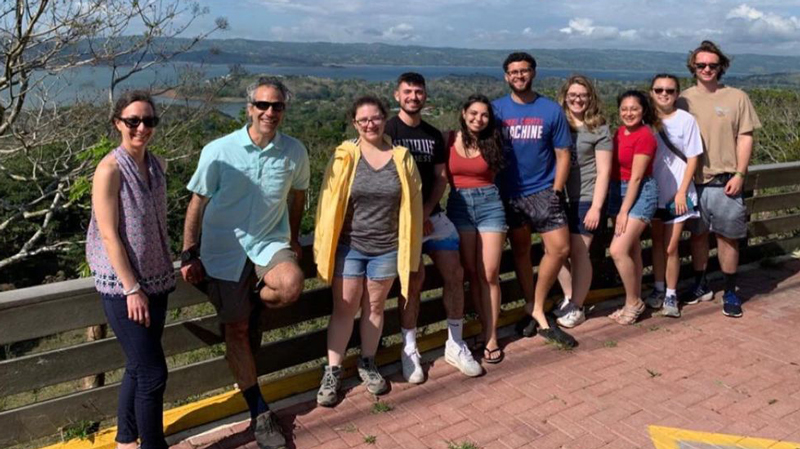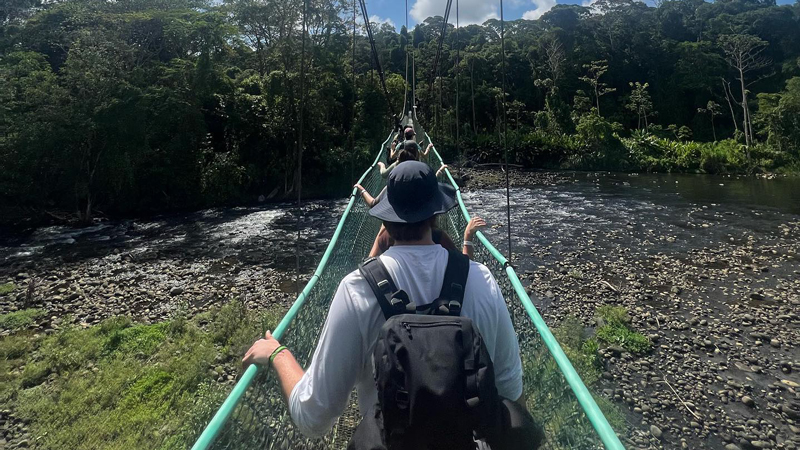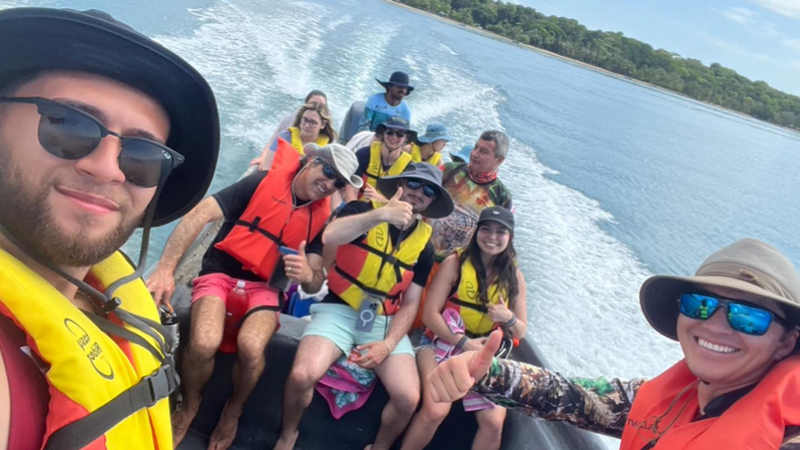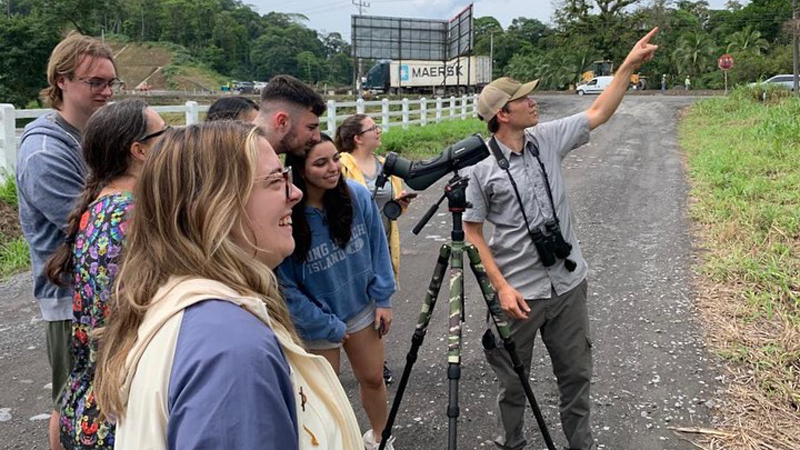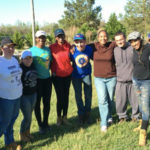A group of biology students and faculty explored the spectacular biodiversity of Costa Rica as a part of a field ecology course in May.
Led by Kestrel Perez, Ph.D., and Konstantine Rountos, Ph.D., associate professors of biology at the Brooklyn and Long Island campuses, respectively, the eight students examined coral reefs, mangrove forests and tropical rainforests as a part of an eight-day trip.
“The class experienced first-hand a new ecosystem and observed many amazing species,” said Dr. Perez. “Some of the students were traveling abroad for the first time.”
Guides from the Costa Rican Monteverde Research Institute joined the St. Joseph’s University contingent on their travels, providing unique insights into the country’s diverse ecosystems.
The group hiked and enjoyed a beach sunset during a two-day stay at Cahuita National Park. Students snorkeled and interacted with dolphins and sea turtles, and later traveled into the Tirimbina rainforest to take part in bat mist netting.
Other activities included: observing a humpback whale and crocodiles, kayaking, learning about sustainability issues, and night hiking.
“Experiential learning opportunities through study abroad courses like BIO280 are one of the greatest learning experiences for our students,” Dr. Rountos said.
“It’s one thing to learn about the importance of biodiversity in tropical rainforests from a book, but it’s quite another to hike and kayak in a rainforest and surround yourself with the sights, sounds and smells of nature’s bounty,” he added.

